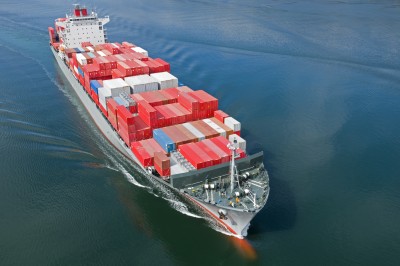
The international shipping industry has signed a declaration of intent to address the transport of counterfeit goods by sea.
Signed in Brussels, and organised by the International Chamber of Commerce, the 'Declaration of Intent to Prevent the Maritime of Counterfeit Goods' included signatories from leading global shipping firms, freight forwarders, 10 major multinational brand manufacturers, and several associations including anti-counterfeiting and crime organisations.
Under the declaration, the shipping industry agreed to address the issue of counterfeits, which it acknowledged as having a "destructive impact" on international trade. This will be achieved "through continuous proactive measures, and corporate social responsibility principles", including a commitment to "stop business co-operation with those suspected of dealing in the counterfeit trade", a zero tolerance policy on counterfeiting, strict supply chain controls, due diligence checks, information exchange and risk profiling.
This is the first time the global shipping industry and brand owners have publicly shown their commitment to work together to stop the transport of counterfeit goods on ships.
"This declaration demonstrates the commitment of vessel owners, transport service providers and brand owners to work together to eliminate counterfeits from maritime trade routes," said Jeffrey Hardy, director of Business Action to Stop Counterfeiting and Piracy (BASCAP). "This commitment paves the way for new voluntary collaboration programmes between intermediaries and brand owners to stop abuse of the global supply chain by counterfeiters."
Michael Jul Hansen, customs and trade compliance lead for Maersk Line, one of the world's largest container shipping firms, called the declaration "historic" and said the shipping line was "proud" to be a part of the initiative. "Maersk has been a leader in taking steps to prevent the use of our vessels for the shipment of counterfeit and other illicit goods, and this declaration is a reaffirmation of our intent to do everything we can to ensure our ships are counterfeit free."
The declaration was welcomed by the consumer goods industry, with Meena Sayal, global brand protection director at Unilever and chair of the BASCAP working group on the initiative, praising the "co-operative and collaborative" response from the transport industry in this "important first step" to address the issue of counterfeits. "BASCAP member companies, including Unilever, have been frustrated in seeing that the same transport companies that we use to ship our products around the world are being abused by criminals to distribute fake versions of our products. We recognise this is a new and complicated issue for many in the transport industry, but appreciate the unanimous recognition that there is a problem and more can b done to solve it."
Matteo Mattei, manager of global strategic initiatives at tobacco company Philip Morris International, said the declaration marked a "significant milestone" in protecting the integrity of supply chains and combating illicit trade. "Closer collaboration with vessel owners and freight forwarders is key to preventing abuses and achieving sustainable results. We welcome the work done by BASCAP in bringing together parties throughout the logistic process to find solutions, and we are proud to be part of this process."
The declaration follows brand owners' concerns that counterfeiters were using legitimate shipping lines to transport fake products around the world. A report published in 2015 by BASCAP – Role and Responsibilities of Intermediaries: Fighting Counterfeiting and Piracy in the Supply Chain – highlighted how global supply chains were being infiltrated by counterfeiters and listed a number of recommendations. In response, BASCAP established a working group to initiate dialogue with the transport industry and to explore solutions leading to the declaration.
About 90 per cent of all international trade moves by sea but of the 500 million containers on 89,000 vessels only 2 per cent are inspected to verify their contents, statistics from the United Nations Office on Drugs and Crime (UNODC) reveal. A 2013 OECD report estimated that at least 10 per cent of the $461bn annual global trade in counterfeit goods was transported around the world via container ships.
Following on from signing the declaration, the next step will be for maritime industry partners to develop specific projects and a detailed series of measures on improved information sharing and other initiatives.
The non-binding and voluntary initiative also aims to encourage more industry representatives to sign up as awareness grows.
©
SecuringIndustry.com





